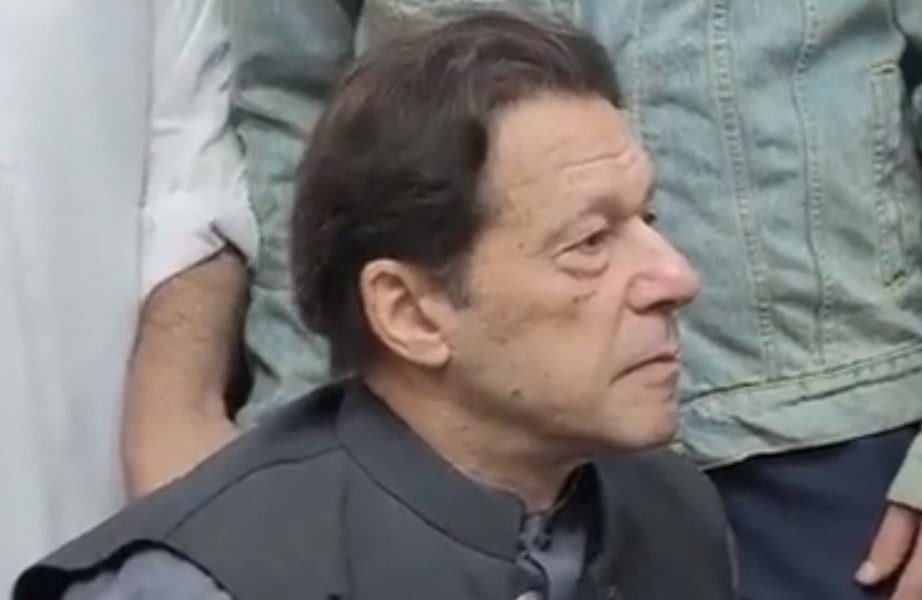Imran Khan, former chairman and prime minister of the Pakistan Tehreek-e-Insaf (PTI), fought against the Election Commission of Pakistan’s (ECP) move to hold his contempt trial in Adiala jail on Saturday.

Imran is accused of calling Chief Election Commissioner Sikander Sultan Raja insulting and rude names at press conferences and public events, which are at the heart of the contempt case.
It was the former prime minister who asked the court to overturn the ECP’s order from November 30, 2023, which said that his trial or processes would take place in Adiala jail for unknown security reasons.
The head of the PTI also asked the court to say that closed trials in jail were a clear violation of basic rights. He also asked the authorities to hold his trial in a public and open court, like any other court case.
He also wanted to stop the procedures before the Election Commission under the Election Act 2017, which would have stopped the respondent CEC from putting him in jail, giving him orders, or using force against him.
In response, the federal government sent its secretary of the Ministry of Law and Justice, the ECP sent its chief executive officer, secretary, and director general of law for the ECP. The secretary of the Ministry of the Interior, the commander of the Adiala jail district, and the additional inspector general (AIG) of police (operations) also sent letters.
Imran sent the petition through Barrister Sameer Khosa, who said that the order in question wrongly says that the respondent CEC has the power to order a trial in secret and in jail. Adding to that, he said that the CEC depended on the report from superintendent Adiala jail, which says that the Code of Criminal Procedure 1898 does not apply to contempt proceedings because they are unique.
“The respondent CEC didn’t understand that there is no inherent power to hold proceedings in jail unless a specific power is given by a law that allows it to do so.” The respondent, Superintendent Jail, said in their report that the proceedings are not covered by the Code of Criminal Procedure 1898. This means that neither the Elections Act 2017 nor the Contempt of Court Ordinance 2003 allow proceedings to take place in jail.
“Thus, the impugned order, in purporting to exercise a power that ECP does not have, is patently without jurisdiction.” He argued that the CEC is not a court with judicial power, but rather an office of the executive branch.
“Neither is it a court for Article 204 of the Constitution, Article 175, or the High Court as mandated by Article 203 of the Constitution.”
He also said that the CEC, which is not a court, could not use the power given to courts by law.
“The impugned order issued by CEC relies on the report submitted by Superintendent Jail, which states that since the Election Act 2017 does not specify the place of sitting or trial for contempt proceedings and because the federal government has already approved certain orders for trials to be held in jail, respondent CEC has the authority to order a trial in secret and in jail.”
The lawyer also said that this is an example of an administrative or executive agency taking on power that isn’t directly mentioned in the Constitution and isn’t allowed by the laws that make it possible. Instead, the CEC thinks it can choose where the hearing will take place because superintendent Adiala jail says so.
It said, “Silence cannot be taken to mean that respondent CEC and Superintendent Adiala jail can interpret the constitution and the Election Act in any way they choose.” The Constitution set the rules for the law. “Respondent CEC and Superintendent Jail cannot write anything they want on a blank slate,” the plea said.
“The constitution’s structure was carefully thought out to protect people’s basic rights from being overstepped upon.” The fact that other court cases have been handled in jail is not proof that jail hearings are legal or acceptable. It shows that the defendant CEC and Superintendent Adiala jail have already decided to deny the petitioner his basic rights and are doing so while other cases are going on.










































